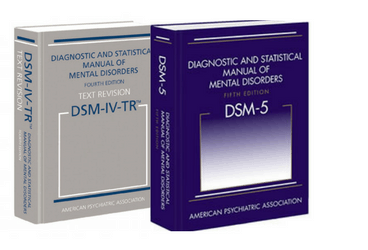How a Missing “I” Can Expose an Out-of-Date Qbank

As a psychiatrist, I enjoy teaching PA students during their Psychiatry and Behavioral Medicine clinical rotation. But recently, I noticed something odd. While my students were studying for their rotation exam using another Qbank provided by their program, the question and explanation seemed to reflect the old diagnostic criteria from psychiatry’s handbook of diagnosis, the Diagnostic and Statistical Manual of Mental Disorders (DSM). That’s not necessarily odd, in and of itself. But then it happened again. And again.
For example, one explanation said that ADHD diagnosis needed symptoms present prior to age 7, but that was the old criteria from DSM-IV-TR (fourth edition, text revised version of the DSM). The newest DSM-5 (fifth edition) criteria sets the threshold to before age 12 instead.
Interestingly, there was a common theme when the old diagnostic criteria were used: they referenced the source as the “DSM-V-TR.” The strange thing about this is that there is no DSM-V-TR—it does not exist.
For those less familiar with some recent changes to the DSM produced by the American Psychiatry Association, the APA switched from Roman numerals (which it had used in prior editions) to Arabic numbers (so using 5 instead of V for the most recent edition). Also, there will no longer be “text revised” versions for updates before a new edition of the manual is made. It will instead be 5.1 or 5.2, which will be more familiar to those used to software or operating system updates.
So how might someone make it seem as though the information is up to date without actually changing the content or checking if things were changed in the latest DSM? Just take out the “I” from DSM-IV-TR and you get DSM-V-TR.
At Rosh Review we want you to feel confident with high-yield, high-quality content. We are also proud to have newly released PA rotation exams to help PA students prepare for their PAEA Psychiatry & Behavioral Health Rotation Exam.
Study on!
Get Free Access and Join Thousands of Happy Learners
You must be logged in to post a comment.






Comments (0)